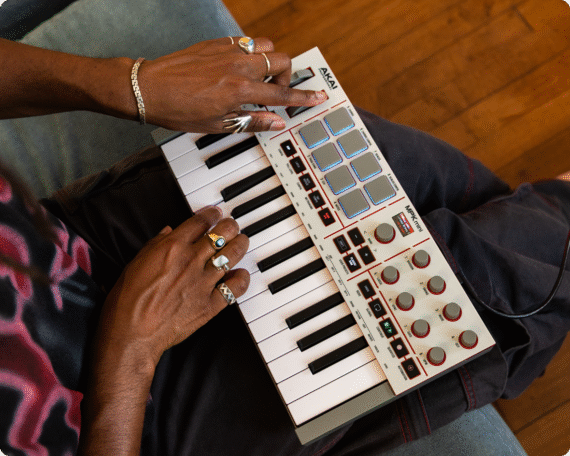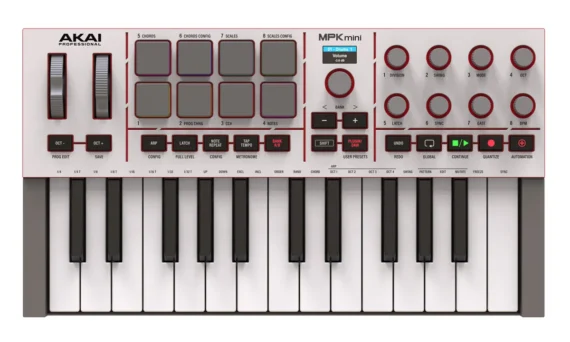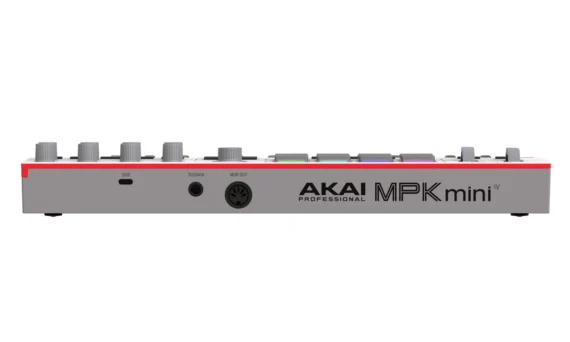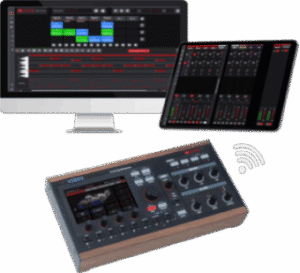Behringer Releases Its Casio CZ-1 Clone, The CZ-1 Mini
Two years on from its announcement, Behringer’s take on Casio’s CZ series of phase distortion synthesizers has officially landed.
Promising to replicate the sound of the CZ-1, a classic Casio phase distortion synth released in 1986, CZ-1 Mini is a compact and affordable instrument with a 27-key touch-capacitive keyboard, adopting the same miniature form factor as Behringer Pro-VS Mini, Phara-O Mini and JT Mini.
CZ-1 Mini is built on a meticulous recreation of Casio’s original synth engine and is compatible with the original synth’s SysEx files, but it isn’t a straight clone of the CZ-1. Casio’s CZ-1 was an eight-voice polyphonic synth, but the Mini has three voices, and Behringer’s version brings an analogue 24dB low-pass filter to the party.
CZ-1 Mini’s two DCOs can produce the same eight waveforms that you’ll find in the original Casio CZ series: sawtooth, square, pulse, double sine, saw pulse and three “resonant waveforms”, shapes with simulated filter resonance that were designed to account for the CZ series’ lack of a conventional filter.
These run through dual DCWs, or Digitally Controlled Waves, which control the amount of phase distortion being applied to the oscillators, before amplitude is shaped by a per-oscillator DCA. The synth is equipped with a recreation of the CZ-1’s sophisticated eight-stage envelope generator, which can be used to shape the DCO’s pitch, the DCW’s timbre and the DCA’s volume, creating complex and evolving patches.
Rounding things off, there’s also a basic chorus effect onboard with controls for rate and depth and a vibrato with four shapes. The synth can be programmed via its 16-step sequencer, which has space for up to 16 patterns, and there’s a multimode arpeggiator onboard too. As for I/O, you’ve got USB-C, 5-pin DIN MIDI in, a sync input and a 3.5mm headphone jack.
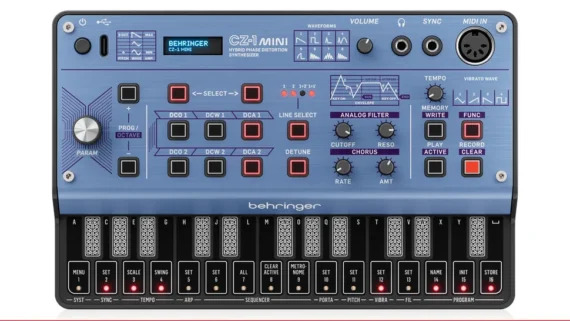
Product Features:
- Phase distortion engine featuring 8 classical waveforms
- Authentic reproduction of CZ-1 sound engine
- Supports original Casio CZ series SysEx for enhanced compatibility
- 27 touch-sensitive keys for great playability
- Analog 24 dB low-pass filter
- 16-step sequencer with easy programmability
- Arpeggiator with 3 patterns
- Studio-grade Chorus effect
- Dedicated Filter envelope and LFO for creative sound shaping
- High-resolution OLED display for easy parameter editing
- USB Type C allows powering via smartphone, power bank or computer
- Sync Input to synchronize with your other synthesizers or drum machines
- Comprehensive MIDI implementation (including NRPN/CC control of all parameters and bulk load/save)
Behringer CZ-1 Mini is priced at $89 (Excl. US). Find out more on Behringer website.
